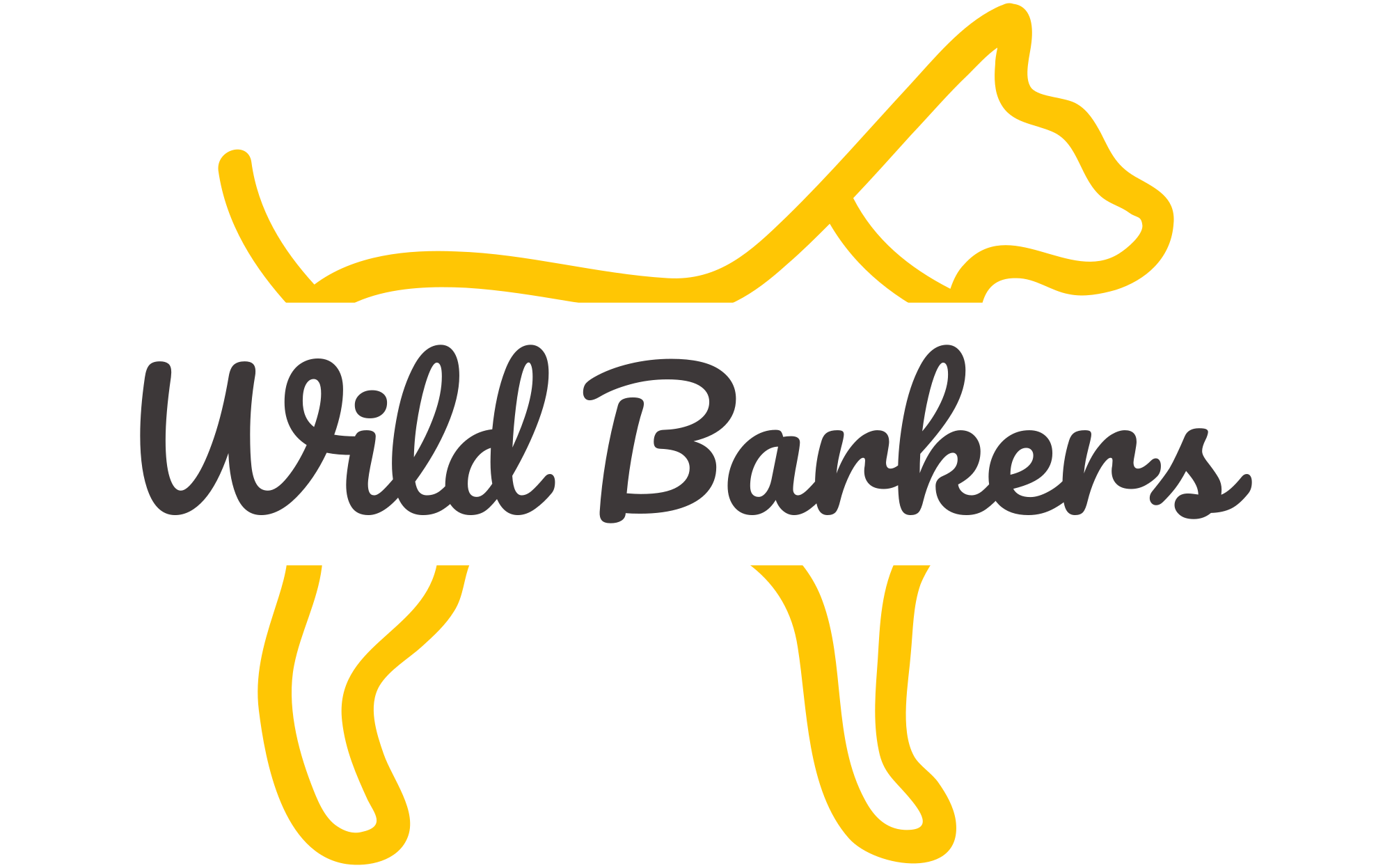Giving dogs table scraps, as well as cooking them biscuits and meals is a lovely treat for them.
There are foods that possess health benefits, and others which could be fatal. Check out our list of common ones.
- Grains, Beans, Legumes (+ Other Carbohydrates)
- Vegetables
- Fruits
- Protein
- Dairy
- Drinks
- Nuts and Seeds
- Snacks
- Herbs, Spices, Seasonings, and Flavorings
GRAINS, BEANS, LEGUMES (+ OTHER CARBOHYDRATES)
Baked Beans – Can dogs eat baked beans? No. Whether or not baked beans are toxic to dogs depends on the ingredients. Regardless, they are not healthy and should not be fed to dogs. The beans themselves are usually safe for dogs, and tomatoes are also ok for dogs in small amounts. However, most varieties may contain ingredients that could be toxic to dogs, like xylitol, onion, or garlic to enhance the flavor. Despite this, all types of baked beans are not healthy for dogs due to the high amount of salt and sugar. You should not feed your dog baked beans.
Black Beans – Can dogs eat black beans? Yes! Black beans are a super source of vitamins C & K, manganese, protein, iron, and dietary fiber. Just like all human foods, some beans are safe for dogs to eat as others pose a potential threat. Black beans are an excellent addition to a dogs’ diet, whether you’re using them as treats or adding them to their dinner. Black beans, pinto beans, and kidney beans provide dogs with high levels of plant-based protein, which is essential for muscle strength and growth.
Buckwheat – Can dogs eat buckwheat? Yes, dogs can safely consume the grain-like seed once it is cooked. It is a great gluten-free alternative to wheat. It boasts many health benefits and is high in minerals and antioxidants. However, the rest of the buckwheat plant is toxic to dogs. It can cause photosensitivity.
Flour – Can dogs eat flour? Yes, wheat flour is not toxic to dogs. However, it is common for dogs to have wheat, gluten, or grain allergies, which means traditional wheat flour would not be suitable. Flour is not a necessity in your dog’s diet, but it is commonly used in both their food and treats as a binding agent.
Lentils – Can dogs eat lentils? Yes, once cooked lentils are safe for dogs in moderate amounts. They are a healthy source of plant-based protein, rich in fiber, may promote weight loss, and can potentially benefit a dog with diabetes.
Noodles – Can dogs eat noodles? Noodles are not toxic or poisonous to dogs, but they offer no nutritional benefits to dogs. Noodles are quite high in carbohydrates and should not be added to a dogs’ diet as it can cause your dog to gain weight, ultimately leading to problems such as heart disease. It is also important to note that if you do decide to give your dog pasta, it should be cooked and given without any sauce or added ingredients.
Oatmeal – Can dogs eat oatmeal? Yes. A hot bowl of porridge in the morning is the perfect way to start off a cold winter’s day. But is it as healthy for dogs as it is for us humans? Yes! Oats can reduce their cholesterol levels, ultimately lowering the risk of heart disease. As well as this, oats are a good source of zinc, magnesium, vitamins B, and E.
Pasta – Can dogs eat pasta? Yes, pasta is not toxic and is a source of energy. However, some dogs do have wheat and gluten allergies, so be wary when you first feed it to them.
Quinoa – Can dogs eat quinoa? Yes. Cooked quinoa can be a great addition to your dog’s diet. It has many nutritional benefits, including being high in fiber and protein, low in fat, and full of vitamins and antioxidants.
VEGETABLES
Beets – Can dogs eat beets? Yes! However, as with any other food, it should be given in moderation, and your dog closely monitored in case of any allergens. Beets are a great source of fiber, vitamin B9/ folate, manganese, iron, vitamin C, and potassium.
Broccoli – Can dogs eat broccoli? Yes. Dogs can eat cooked broccoli, but raw broccoli isn’t recommended. However, owners must remember to limit portion sizes as too much broccoli can cause stomach problems. Broccoli is full of fiber and vitamin C. Therefore, it is full of nutrients and an excellent snack for your dogs.
Brussels Sprouts – Can dogs eat sprouts? Yes, dogs can eat Brussels sprouts. Brussels sprouts are not toxic to dogs. They contain essential vitamins and minerals, are high in fiber, and antioxidants. Sprouts are a healthy treat for dogs, but make sure to feed them in moderation. Sprouts can cause flatulence and diarrhea.
Cucumber – Can dogs eat cucumber? Yes. Crunchy, low in calories, and high in water. Cucumber makes an excellent treat for dogs. Just ensure you chop it up to a suitable size to avoid chocking. Cucumber is great as a refreshing treat on a warm day to help with hydration.
Garlic – Can dogs eat garlic? No, garlic is part of the allium family. These foods are poisonous to dogs as they can cause anemia.
Ginger – Can dogs eat ginger? Yes! However, as with everything, it should be given to your dog in moderation. After giving it to them for the first time, they should be closely monitored for any allergic reaction symptoms. Ginger can help dogs with nausea, muscle pain/soreness, motion sickness, chronic indigestion, and blood circulation.
Green Beans – Can dogs eat green beans? Yes. Arguably one of the most favored among the dog community, green beans are an excellent choice. They contain plenty of vitamins and minerals and can be used to make dog food or served alone as a low-calorie treat. Green beans can be helpful for weight loss, and many people use them to pad out their dog’s dinner, making them feel fuller with a low-calorie vegetable.
Leeks – Can dogs eat leeks? No. Leeks belong to the allium family and are known to be toxic to dogs. If a considerable amount (depending on the dogs’ size, breed, weight, etc.) of any vegetable in the allium group (leek, garlic, onion, shallot, chives) are consumed, or little, and often, they can cause anemia.
Lettuce – Can dogs eat lettuce? Yes! Dogs can safely consume many varieties of lettuce without fear of any harmful or toxic consequences. The crunchy salad leaf can be great to add to their meals, or for dogs to eat as a healthy treat.
Onion – Can dogs eat onion? No. Onions contain N-propyl disulfide. This is a toxin that affects a dog’s red blood cells. This affects their ability to carry oxygen around the body and can cause anemia.
Parsnips – Can dogs eat parsnips? Yes, parsnips are safe for dogs to eat. They are a good source of fiber, contain antioxidants, and are low in calories. Parsnips can help with digestion, weight loss, bone health, and may help prevent cancer.
Peas – Can dogs eat peas? Yes. They contain a variety of vitamins which are essential for dogs’ immune system. They are high in fiber to help with your dog’s digestion. Peas can be fed as a treat or mixed into their dog food.
Potatoes, mashed – Can dogs eat mashed potatoes? It depends. Pure mashed potato is safe for dogs. However, many varieties contain added ingredients that are unhealthy, and some can be harmful. These include dairy (such as butter, cream, milk, as many dogs struggle to digest dairy), salt, onion or garlic powder, chives, and gravy.
Radishes – Can dogs eat radishes? Yes! Radishes are highly nutritious for dogs as they are rich in vitamins and minerals. Radishes contain high levels of fiber, potassium, and vitamin C, all of which are vital for a healthy dog. The rough texture of radish also makes it a useful cleaning tool for your dogs’ teeth as it helps to remove the build-up of plaque.
Rhubarb – Can dogs eat rhubarb? Yes and no. The stems of the rhubarb plant are ok for a dog to eat. However, the leaves contain high levels of oxalic acid (oxalate crystals), which is very toxic to dogs. The stems of a rhubarb are an excellent source of nutrients and provide dogs with calcium, vitamins K and C, dietary fiber, potassium, magnesium, and other vitamins and minerals.
Squash – Can dogs eat squash? All varieties of squash are safe for dogs to eat. Butternut squash is full of healthy vitamins and nutrients; these include; Vitamin A, B6, C, Folate, and Magnesium. These enhance your dog’s health and can help cure any stomach bugs that lead to diarrhea. Squash also has antioxidants that act as an anti-inflammatory, ideal for older dogs fighting arthritis.
Sweet Potato – Can dogs eat sweet potato? Yes. Once cooked, they are safe for dogs. They are commonly used in commercial dog food.
Yams – Can dogs eat yams? Maybe. True yams are thought to be safe for dogs once peeled and cooked. However, true yams are not something that is commonly eaten or fed to dogs, so there is little information from reliable sources about the potential side effects and benefits (link). Some varieties of sweet potatoes are commonly called yams in North America. The term ‘yam’ tends to be used interchangeably in the USA. Sweet potatoes are safe for dogs.
Zucchini – Can dogs eat zucchini? Yes. Dogs can eat zucchini. Zucchini provides dogs with high levels of fiber, vitamins, and minerals. All of the nutrients that a dog needs. Zucchini is well known for its weight loss benefits due to its high levels of fiber but low levels of calories. It will keep your dog feeling full for longer without them eating vast amounts of food.
FRUITS
Apples – Can dogs eat apples? Yes, giving your dog the skin and flesh is perfectly healthy and a tasty treat for dogs. Apple has many nutritional benefits, including containing antioxidants, which are thought to help prevent cancer and diabetes, as well as helping with weight loss and heart health.
Apple Cores – Can dogs eat apple cores? Not really. Apple cores can be a choking hazard to dogs. The core contains the seeds which contain cyanide. If cyanide is consumed in large enough quantities, this can be poisonous to dogs.
Apricots – Can dogs eat apricots? Yes, with precaution and preparation. Apricots themselves are good for dogs and full of nutrition. However, the seeds and other parts of the apricot plant can be harmful or even fatal for your dog! Apricot plants and their seeds contain traces of something called cyanide. When digested by dogs, cyanide prevents the uptake of oxygen by the red blood cells, making it difficult for your dogs to breathe and ultimately can lead to death.
Avocados – Can dogs eat avocados? No, avocado contains persin, which is toxic to dogs. It is mostly found in the seed and skin. However, small amounts may be found in the flesh. The amount which can be tolerated by dogs is unknown, so it is best to avoid this fruit.
Cherries – Can dogs eat cherries? No, the outside of the cherry is, in fact, ok for dogs to eat. It contains vitamins A and C as well as fiber and antioxidants. However, it is still not recommended for dogs to eat as there may be traces of cyanide. Cyanide is a chemical compound that is highly toxic and has serious consequences when consumed by dogs. The pips and stem of cherries are what contain the highly poisonous chemical.
Figs – Can dogs eat figs? Yes, dogs can eat figs. They’re a highly nutritious fruit, full of flavor and extra juicy!
Grapes – Can dogs eat grapes? No, grapes are toxic to dogs. Little is known about why they are so toxic and the amount that is toxic. One grape is enough to kill a dog of any size. Grapes can cause kidney failure.
Guava – Can dogs eat guava? Yes, dogs can eat guava! As with all ‘human’ foods, dogs should be given guava in moderation. Guava is highly nutritious and provides dogs with beneficial vitamins and minerals. However, guava is also high in carbohydrates and sugars. Therefore it should only be given as a small treat.
Papaya – Can dogs eat papaya? Yes, but make sure you remove the pips and peel. When given to your dog in moderation, papaya offers a variety of nutritional benefits, and the enzymes are excellent for promoting a healthy gut in dogs and humans. Papaya is especially high in fiber along with other vitamins and minerals such as; magnesium, potassium, and vitamin C.
Persimmons – Can dogs eat persimmons? Yes, but with precaution! The persimmon is highly nutritious as it contains vitamin C, iron, and calcium. If feeding your dog persimmons, you should ensure the pit and seeds are removed as it can cause indigestion blockage which can lead to serious implications.
Plums – Can dogs eat plums? Yes, but with extra precaution! Plums are an excellent source of nutrition for dogs as they are low in calories but contain high levels of fiber, vitamins A, C, K, and potassium. The stone is the hard piece inside the plum and can be toxic for dogs, as well as causing potential choking hazards.
Raisins – Can dogs eat raisins? No, the same as grapes. Raisins are also toxic and can be fatal to dogs.
Watermelon – Can dogs eat watermelon? Yes! It can be a healthy, hydrating, and refreshing snack for all dog breeds. There are many ways to feed this delicious treat to your dogs, from fresh, freezing, to dehydrating. However, it should be given as a treat in moderation.
PROTEIN
Bacon, Raw – Can dogs eat raw bacon? No. Feeding dogs raw pork can have many side effects that put your pooch in a lot of stress and pain.
Eggshells – Can dogs eat eggshells? Yes. Dogs can eat a whole egg, including the shell. Or the shells can be fed alone. Many people bake and then grind the shells into a powder, so they are easier for their dogs to consume. Ground eggshells are commonly used as a calcium supplement.
Pepperoni – Can dogs eat pepperoni? No. Although pepperoni isn’t on the list of toxic foods for dogs, unfortunately, it is high in sodium (salt) and fat. Fatty and salty foods can cause dogs short and long term problems, salt poisoning, and pancreatitis is the most common.
Salami – Can dogs eat salami? Not really. Salami isn’t on the list of toxic foods for dogs, but it offers little if not zero nutritional benefits. Salami is high in sodium and fat and therefore, should not be included in a dog’s diet. If your dog was to eat small amounts of salami, there is not too much to be worried about as it will not harm them.
Shrimp – Can dogs eat shrimp? Yes, dogs can eat shrimp, but it must be in moderation and follow the strict guidelines. Shrimp provides dogs with excellent nutrients, vitamins, minerals, and antioxidants, including; protein, vitamin B12, phosphorus, iron, and niacin.
Salmon, Smoked – Can dogs eat smoked salmon? No, we don’t recommend it. It has high levels of salt and the possibility of salmon poisoning, which can be life-threatening. However, plain, boneless thoroughly cooked salmon is great for dogs.
DAIRY
Cheese – Can dogs eat cheese? Yes, in small amounts. Cheese is not toxic to dogs and can work as a tasty training treat in small quantities. However, many dogs are intolerant to dairy, and therefore it can cause an upset stomach.
Sour Cream – Can dogs eat sour cream? Yes, but in moderation. Sour cream is not the most nutritious of food for dogs. It contains high levels of fat and can negatively affect lactose intolerant dogs due to the milk. It is also important that your dog has plain sour cream, and no other added ingredients are added (onions, chives).
DRINKS
Coconut Water – Can dogs drink coconut water? Yes, coconut water is safe for dogs to drink as an occasional treat. It does not replace regular water. Coconut water can be used as a healthy and hydrating drink or used in dog treats. It is rich in carbohydrates, potassium, calcium, and electrolytes. Make sure to use 100% pure coconut water, without any added sugars or sweeteners.
Milk – Can puppies drink milk? Occasionally. Puppies can drink milk, but it should be in moderation. It is important to note that a high percentage of dogs are lactose intolerant to dairy products. Veterinarians recommend that dairy products should only be given to dogs in small doses.
Tea – Can dogs drink tea? Occasionally. But we don’t recommend it. Tea is not toxic in small portions. A small quantity of tea shouldn’t harm your dog or cause any long-term effects. However, it does contain caffeine, which, if consumed in excess, can cause serious health issues.
NUTS AND SEEDS
Almonds – Can dogs eat almonds? Maybe, occasionally in small amounts should be safe. Almonds aren’t great for dogs as they’re high fat and can cause gastrointestinal issues. Almonds are also difficult for dogs to digest. They pose a risk of choking. But they’re not that toxic. However, like peanuts, they contain aflatoxins, which can be a problem. Almond flour cuts down on the risk of choking, but again, only feed it to your dog in small amounts and in moderation.
Almond Butter – Can dogs eat almond butter? Occasionally, in moderation, it should be safe for dogs. Pure almond butter does not contain anything known to be fatal. But, check for any added ingredients (xylitol, sugar, oil, salt), which could be toxic to dogs.
Brazil Nuts – Can dogs eat Brazil nuts? Not really, but they are not thought to be toxic to dogs. However, they are not the healthiest treat due to the high-fat content, which makes them difficult to digest. They can also cause intestinal blockages.
Cashews – Can dogs eat cashews? Maybe, but only occasionally, small amounts should be safe. Again, cashews are considered ok for dogs, but they still contain a lot of fat and can cause pancreatitis. The size also makes them choking hazards. Added ingredients can also be toxic.
Hazelnuts – Can dogs eat hazelnuts? Maybe, but only occasionally, small amounts should be safe. Hazelnuts are not thought to be toxic, but they are also not easy to digest and can cause intestinal blockages and choking. As with all nuts, they’re high fat, which can cause obesity and pancreatitis.
Peanut Butter – Can dogs eat peanut butter? Yes, they can. However, some peanut butter contains xylitol, which is toxic to dogs. Therefore when purchasing peanut butter for your dog, you should check the labels and ensure your product is xylitol free.
Pumpkin Seeds – Can dogs eat pumpkin seeds? Yes, pumpkin seeds (or pepitas) contain many health benefits and can be added to your dog’s diet. Pumpkin is a superfood for your dog.
SNACKS
Caramel – Can dogs eat caramel? No, your dog should not eat caramel. While caramel is not toxic to dogs, it contains raw sugar, which you should never give to your dog. Sugar can cause health issues, including cavities, obesity, and diabetes, and it can also affect your dog’s mood.
Cereal – Can dogs eat cereal? It depends. Most cereals are safe for dogs, and a small amount is considered ok, but it depends on the ingredients. There are several ingredients commonly used in a cereal that needs to be avoided, like chocolate, grapes, raisins, and sweeteners, as these can be toxic. Cereal does not have nutritional benefits for dogs, and most contain a considerable amount of sugar, which is not recommended for dogs. Although it might be safe, it is not the healthiest option.
Chocolate – Can dogs eat chocolate? No, chocolate contains theobromine, and when consumed in large amounts can cause internal bleeding and heart attacks. Larger dogs can tolerate more theobromine than smaller dogs, but it can still cause an upset stomach when ingested in small amounts.
Custard – Can dogs eat custard? No, dogs should not have custard, although it will not likely be fatal for them. Custard contains lactose, saturated fats, and sugars, all of which are not good for your dog’s health because it can cause stomach upset, weight gain, and dental problems
Doritos – Can dogs eat Doritos? Not really, they are not healthy and have no nutritional benefits to dogs and can cause health issues due to the high salt and fat content. Some flavors of Doritos can contain toxic ingredients, such as chives, garlic, and onion powder, which need to be avoided as they can cause anemia.
Hummus – Can dogs eat hummus? No. Hummus usually contains ingredients that are toxic to dogs and should be avoided. Both garlic and lemon juice are commonly used in hummus. Garlic is toxic to dogs and can cause anemia. Lemon juice is not considered poisonous but is not recommended either. It can cause gastric upset.
Jelly, Jam, Jell-O, Jelly Beans – Can dogs eat jelly, Jell-O or jam? Not really. It depends on the ingredients, but it not recommended. If the jelly, jam, or Jell-O only contains sugar, berries (strawberries, raspberries, or another dog safe fruit), and gelatin, it won’t be toxic. However, jelly, jam, and Jell-O can include ingredients such as xylitol, preservatives, colorings, and flavorings (such as grape), which can be toxic.
Licorice – Can dogs eat licorice? No. The black licorice treat that us humans eat as a sweet snack is unhealthy for dogs due to the high levels of sugar. Furthermore, the licorice plant itself contains glycyrrhizin. Consuming too much glycyrrhizin can become toxic to your dog, ultimately increasing their blood pressure. It is important to note, the licorice root itself is a herbal remedy and has proven to help ease arthritis pain in dogs’.
Oreos – Can dogs eat Oreos? No. Although Oreos do not contain high levels of real chocolate, they do, however, contain cocoa, which is the main ingredient to make chocolate. As well as containing these toxic ingredients, Oreos can also be classed as a “junk” food for dogs as they’re high in fat and sugar. This article will give you an insight into Oreos, chocolate poisoning, and other healthier alternative dog treats that can be easily baked at home, enjoy!
Pretzels – Can dogs eat pretzels? No, dogs cannot eat pretzels due to the high levels of sodium and salt.
White Chocolate – Can dogs eat white chocolate? No! Although white chocolate contains less theobromine (the toxic ingredient) than milk or dark chocolate, it can still cause serious problems in your dog. Due to the low amounts of theobromine, it would take a lot of white chocolate to cause toxic poisoning in your dog.
HERBS, SPICES, SEASONINGS, AND FLAVORINGS
Ketchup – Can dogs eat ketchup? Not really, although it is not usually toxic. Ketchup should not be fed routinely. It is junk food with no nutritional benefits to dogs. Whether or not tomato ketchup is safe for dogs depends on the ingredients. If it contains added toxins, like xylitol, onion powder, or other flavorings, it is harmful to dogs. But if it only contains tomatoes, sugar, salt, and vinegar, it should not be fatal. Despite this, it contains a high amount of salt and sugar, neither is recommended in large volumes for dogs.
Mustard – Can dogs eat mustard? No. Mustard seeds are thought to be toxic to dogs, so they are best avoided. There is no need to feed your dog mustard.
Parsley – Can dogs eat parsley? Yes! Parsley is an excellent source of vitamins A and C, as well as providing dogs with antioxidants. Antioxidants act as an anti-inflammatory and help to reduce inflammation around the muscles and joints, especially in older dogs. It is important to note that a specific type of parsley (Petroselinum crispum or Spring Parsley) contains toxins that, when consumed in large amounts, can become toxic to dogs. Ensure you do not feed this type of parsley to your dog.
Pesto – Can dogs eat pesto? No, although pesto is primarily made up of basil, which is safe for dogs, it contains garlic, which is known to be toxic, as well as oil and cheese which can cause health issues, such as, diarrhea, vomiting, and obesity.
Salt – Can dogs eat salt? Some, but not excessively. Dogs need sodium to function regularly. However, excess salt consumption can cause serious health issues.
Xylitol – Can dogs eat xylitol? No, it is extremely toxic to dogs. Xylitol is a sugar substitute, and in humans does not affect the insulin levels, hence being safe for human consumption. However, in dogs, it results in the rapid release of insulin, therefore lowering blood sugar levels dangerously low, which could result in hypoglycemia.
Feel free to share our pins on your site to help another dog parent!
Looking for more pawsome posts? Check these out…
Can Dogs Get Chickenpox?
How To Make A Snuffle Mat
When Do Puppies Lose Their Teeth?
Vegetable String Game For Dogs
Kong Stuffing Recipes
Disclaimer: Each dog is different, and every circumstance is different. All efforts have been made to provide accurate information. However, it is not provided by a qualified Veterinarian, Veterinarian Surgeon, or Behaviorist. The information provided is purely educational. The information should not be used as an alternative or substitute for medical care. If you have any health or medical concerns, contact a qualified Veterinary Surgeon or Veterinarian immediately.











No Comment! Be the first one.